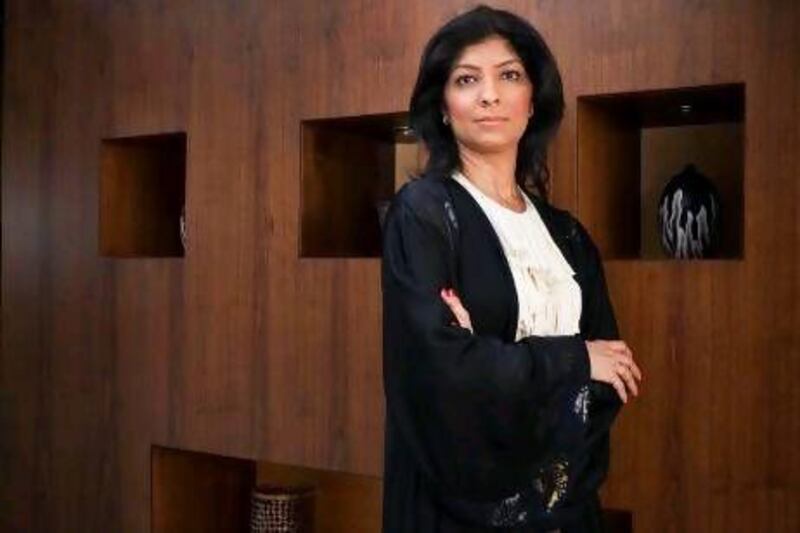DUBAI// When Afra Al Basti was a young graduate in the 1980s, she could not find a job. She had studied science and, at the time, it seemed the only profession open to Emirati women was teaching, she said.
But in the following decades - as the UAE developed - the country's leaders encouraged women to dream larger. Ms Al Basti, 45, from Dubai, watched herself transform.
Today she is one of the UAE's most prominent female leaders. She heads the Dubai Foundation for Women and Children and is a member of the Federal National Council, the country's parliament.
"I was captured in a role," she said of her youth. "And now I can see myself: I'm free with my capabilities. I can go and work wherever I find myself capable to do the job."
Women have always been essential to the nation's growth, Emiratis said this week.
"I think women from this part of the world are very strong," said Dr Houriya Kazim, 53, a breast surgeon in Dubai. "People think of women from the Middle East as being cowering and covered. But if you go into houses, you'll find that there's usually a woman that runs things."
However in recent years, Emirati women have stepped into public life in ways their grandmothers could never have imagined.
Dr Kazim has been reading to her daughter from a memoir by one of her great-aunts, now in her 90s. The woman wrote of a time when feminine roles were extremely limited.
"A woman's place was in her father's house, and you didn't leave that house until you went to your husband's house," Dr Kazim said.
Her relative wrote about learning how to ride a bike as a moment of freedom.
"That was scandalous," Dr Kazim said, laughing.
Reflecting on how much has changed, Dr Kazim said she never felt discouraged from the medical profession. No one told her being a surgeon was a man's job.
Emirati women are especially important to the UAE because of the demographic imbalance, Dr Kazim added.
"We need the entire population to be working towards a better UAE," she said. She encouraged young women to "stick with it" in the workplace.
"That's the hard part, I think," she said. "Because of all the cultural things we have to do - get married young and have lots of kids. It's not always easy to do that and keep working up the pipeline."
Fatma Al Hashimi, an Emirati entrepreneur, also urged young women to remember their ambitions.
"I will always tell them, marriage is important - very important," she said. "But still, don't forget about your career.
"It is very important to know how to be independent in this life, because you never know what the future is hiding."
Ms Al Hashimi, 29, from Dubai, is the owner of Kiddy Couture, two salons for children that use only organic materials. She also works for the Dubai Health Authority and is studying for her second master's degree, in health-care management.
Marvelling at the busy lives of Emirati women, she said: "We study, we run a business and still we work -and still we manage whatever we do at home."
Dr Bushra Al Mulla, 38, from Dubai, thanked the UAE's leaders for having a vision for women.
"If we did not have the leaders' support, we women would not even dream to reach certain positions," said Dr Al Mulla, director of the Dubai Early Childhood Development Center, a government programme for special needs children.
When Dr Al Mulla's mother was growing up, education was limited and mainly religious. By the time Dr Al Mulla was growing up, women were going to universities.
"It was mainly my wish to become a doctor," she said. "And my parents always encouraged me. My mother especially."
When she faced challenges, they were not systematic but personal, she said - the universal question of how to balance work and family.






